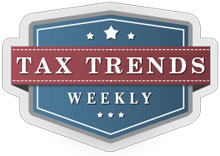Colorado Marijuana Taxes Subject of Much Debate
If Cheech and Chong could write a movie about pot, they more than likely would have never thought that a hampering concern with the legalized recreational usage of marijuana would hedge so greatly on the taxation of it. Yet such is the case in the state of Colorado, one of only two states in the union that has legalized the recreational usage of marijuana for its residents.
While the rest of the states in the union carefully watch to see what sort of systems and models that Colorado sets forth, as they eye legalization considerations themselves, the primary hindrance in the implementation of the program is actually being debated over the taxation of this commodity, something that analysts say is incremental to the system working in the first place.
The question being debated is how much tax is enough for decriminalized and legal, recreational marijuana? Too much, experts say, will only serve to push buyers to the black market. Too few, on the other hand, will not drive the appropriate revenue to the state’s coffers. Like the Three Little Bears, it’s all about finding the bowl of porridge that’s just right for taxpayers and the state alike.
In November, taxpayers are set to take to the ballots once again to vote on a proposed 15 percent state excise tax in addition to a 10 percent state sales tax on all retail sales of cannabis. Specific cities in the state, such as Denver, are also mulling the option of levying their own additional 5 percent tax on the product, in addition to other related fees and charges that could add more than $9 million (estimated) to Denver’s annual revenue.
Advocates for the legalization of marijuana have also implicitly warned the state that over taxation of this commodity may end up pushing buyers back to the black market.
Lawmakers in Colorado have underscored that creating a tax model for a previously banned product is a bit of a taxing endeavor. Since no other state has ever legalized this plant for retail sale before, now Oregon and Colorado must demonstrate to other states in the union that their models of taxation can work for the state and the people.
“This is going to take a couple years of experience before we’re really going to have a clear understanding on both the revenue side as well as the expenditure side,” explained Denver chief financial officer Cary Kennedy in an interview with the Denver Post.
“I get taxing vices, I understand it. That’s what we do in our society,” said William Breathes, a popular columnist in Denver. “But to come out swinging this hard (with all these proposed taxes) … it’s been a little unbelievable.”

